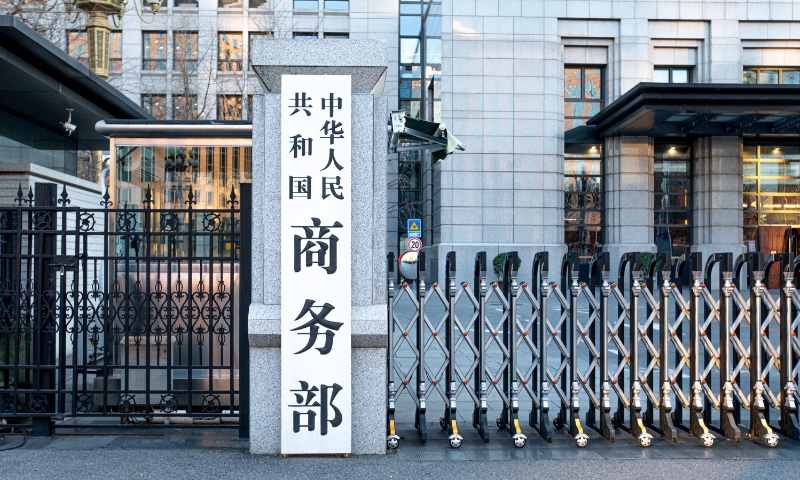
The Ministry of Commerce of China File photo: VCG
A spokesperson for the Trade Remedy and Investigation Bureau of China’s Ministry of Commerce (MOFCOM) responded to media inquiries on Saturday regarding the final ruling on the anti-dumping investigation into brandy imports from the European Union (EU), confirming that certain EU companies offering price commitments will be exempt from anti-dumping duties.
The spokesperson said that in anti-dumping practice, if the investigating authority accepts the price commitments offered by the exporters involved—meaning that future export prices will not fall below a certain level—those exports will not be subject to anti-dumping duties. In this case, relevant EU industry associations and enterprises submitted price commitment applications within the prescribed time.
After a legal review, the investigating authority found that applications from 34 enterprises met the legal requirements and decided to accept them. As long as these enterprises meet the commitment conditions when exporting to China, their products will not be subject to anti-dumping duties, the spokesperson said.
The spokesperson added that if any company is found to have violated its price commitment, the commitment may be revoked and anti-dumping duties reinstated.
In response to a question on the considerations behind accepting price commitments in this case, the spokesperson said that China has always advocated the prudent use of trade remedy measures. The investigating authority conducted a detailed legal review of the price commitment applications and fully considered the situation of the domestic industry. It determined that adopting price commitments in the final ruling complies with China’s laws and regulations and helps safeguard fair market competition.
The decision has received support from domestic industries and has been welcomed by the EU business community. The spokesperson added that accepting price commitments also reflects China’s consistent position of willing to resolve trade frictions through dialogue and consultation.
Global Times